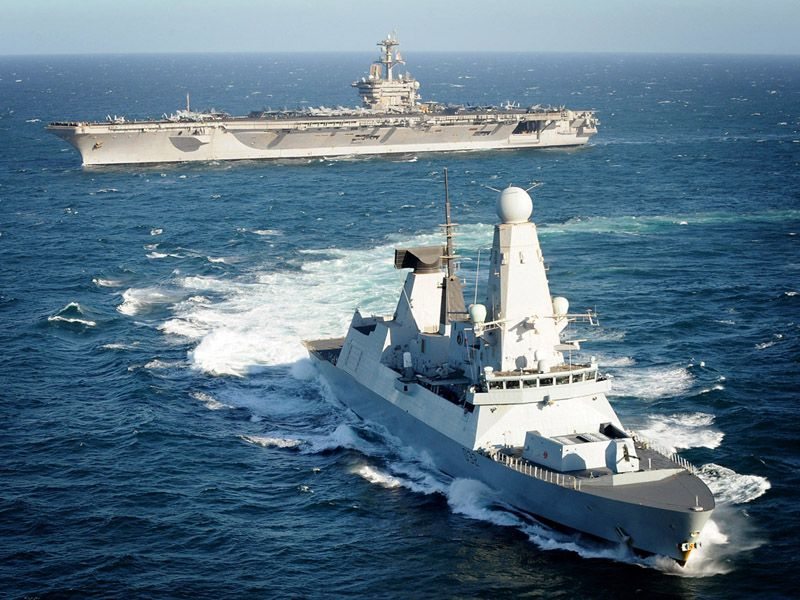The Ministry of Defence is looking for ways to strengthen the security of maritime operations so that it can be more effective at combating illegal activities such as gun-running, people-smuggling and piracy.
A member of HMS Monmouth’s force protection team provides cover during the boarding of a ship that had been assaulted by suspected pirates
The Royal Navy provides the main defence of the UK’s seas and overseas territories and ensures safe navigation, transport and trade in national and international waters.
The security of trade and other maritime operations is critical to UK interests around the world but can be threatened by international crime, which is increasingly using the same waters for unlawful activities such as the movement of people and weapons.
Maritime Constabulary Operations and Maritime Security Operations already use the full spectrum of tools available to the Royal Navy but some hostile activity can be difficult to detect in busy and congested waters where it is hard to identify and stop the few illegal operations out of the vast number of legitimate civilian activities.
More effective tools are now needed to strengthen the UK’s response and reduce the risks to trade and shipping.
The MOD’s Centre for Defence Enterprise (CDE), which is part of the Defence Science and Technology Laboratory (Dstl), is seeking proof-of-concept research proposals from industry and academia to improve the security of maritime operations. Areas of interest include:
- the determination of unlawful activity at sea by developing breakthroughs in the way that activities such as piracy or the transportation of weapons can be detected when unlawful craft and lawful craft look very similar.
- the response to hostile activity at sea by developing new technology, and other solutions, that can provide a graduated range of responses, particularly non-lethal and non-destructive means, when interdicting craft that are carrying out unlawful activities.
- small arms accuracy at sea by developing new tools, such as effective training aids, that are representative of small arms operations on maritime platforms and can provide the feedback on marksmanship accuracy needed to develop performance.
A boarding team from HMS Montrose confiscates suspected pirates’ gear in the Indian Ocean [Picture: Petty Officer (Photographer) Terry Seward, Crown Copyright/MOD 2010]
David Sherburn, who leads the maritime research programme at Dstl, said:
It’s vitally important we reach out to industry and academia which have experience with equipment delivery, technology development and innovation to ensure we get the broadest and most coherent science and technology package of ideas and solutions for the front line commands.”
CDE proves the value of novel, high-risk, high-potential-benefit research sourced from the broadest possible range of science and technology providers, including academia and small companies, to enable development of cost-effective capability advantage for UK Armed Forces and national security.
Successful proposals from a previous maritime-related CDE call, ‘Innovation in Technology for Unmanned Maritime Systems’, have been funded with academia and industry, including small and medium-sized enterprises.
These aim to demonstrate solutions for everything from novel technology for the safe and quick recovery of unmanned systems to technology that can reduce the drag of unmanned systems using micro vortex generators or autonomously power an unmanned system using the energy from ocean waves.











